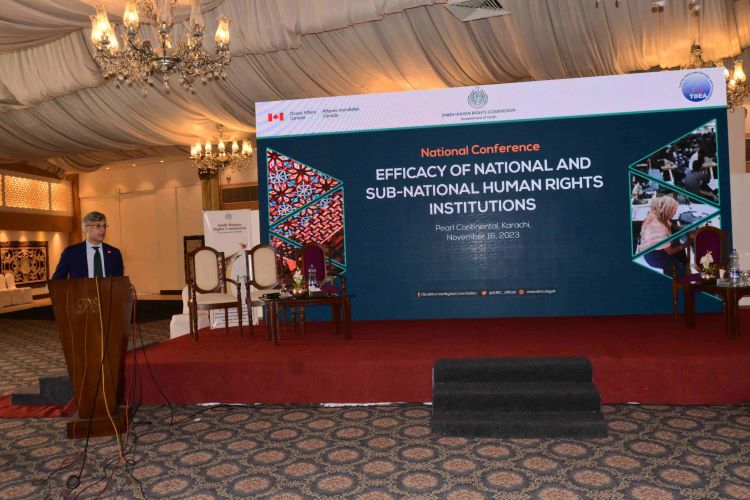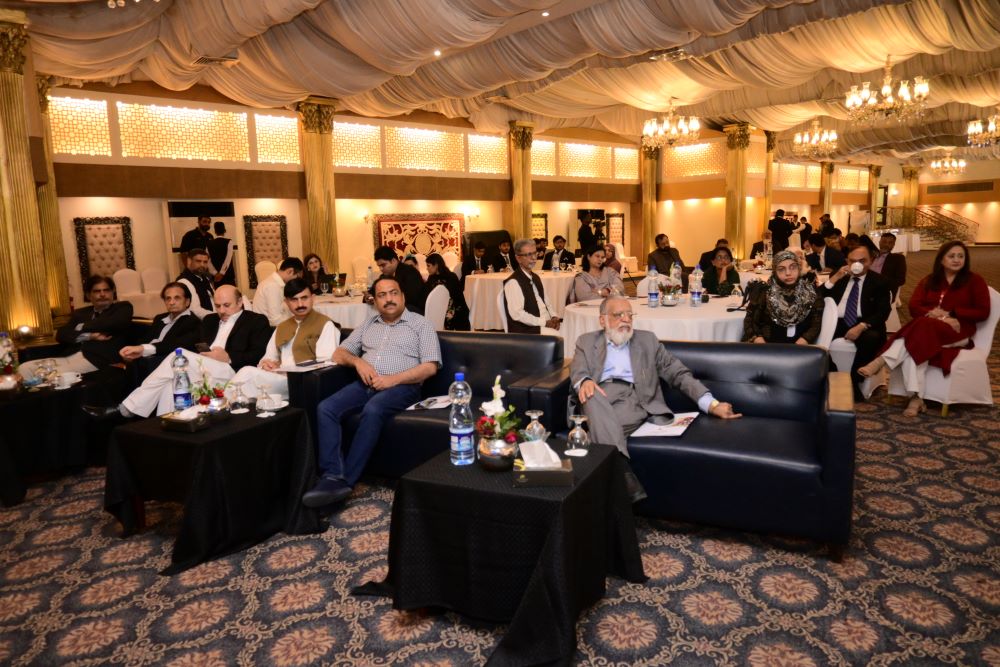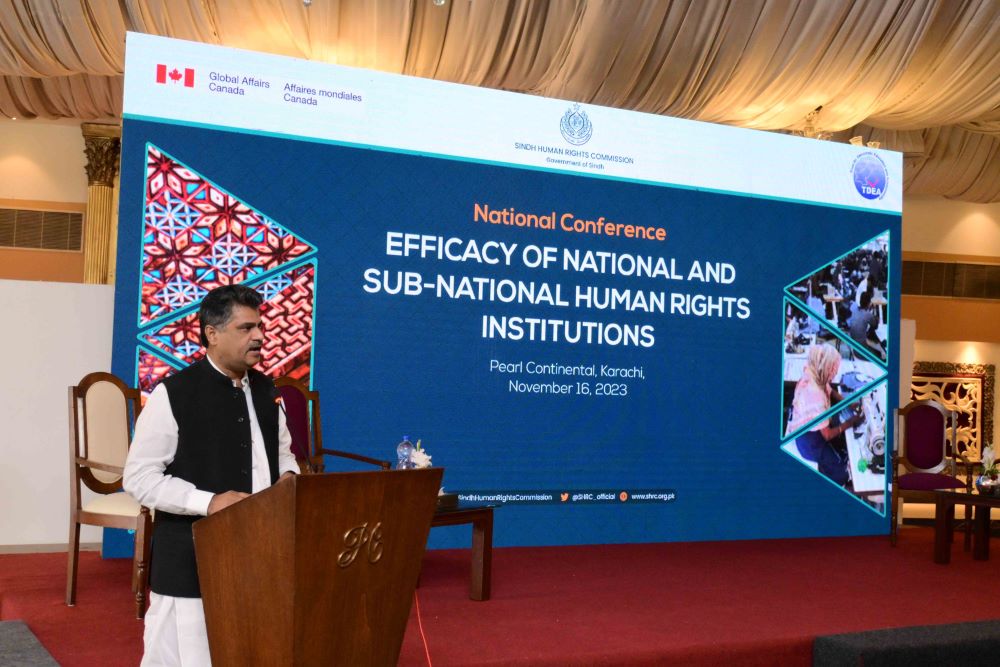
Speakers at a National Conference call for making all the Commissions in the country functional and truly independent
Karachi
It transpired at a national conference on Thursday that many Human Rights Commissions in the country have become dysfunctional or are on the verge of being dysfunctional due to executive interference and political influence.
The conference was jointly organized by the Sindh Human Rights Commission (SHRC) and the Trust for Democratic Education and Accountability (TDEA).
The conference speakers voiced for making all the Commissions established in the country functional, truly independent and effective to comply with the Paris Principles, 1993, which laid foundations for independent commissions to oversee human rights situation, as well as Pakistan’s constitution and the laws governing these institutions.
 They particularly called for removing legal ambiguities, curbing executive’s interference and political influence on the selection of chairpersons and members of the Commissions due to which many Commissions have become dysfunctional or are on the verge of being dysfunctional.
They particularly called for removing legal ambiguities, curbing executive’s interference and political influence on the selection of chairpersons and members of the Commissions due to which many Commissions have become dysfunctional or are on the verge of being dysfunctional.
Current and former leadership of rights-based Commissions, ex-parliamentarians, representatives of federal and provincial governments and human rights defenders from civil society, legal fraternity and academia discussed the challenges faced by national and subnational human rights institutions in Pakistan and identified a set of legal measures to ensure the continuity and sustainability of these institutions mandated to protect the rights of weak and marginalized.
National Commission on Status of Women (NCSW), National Commission on Human Rights (NCHR), Sindh Commission on Status of Women (SCSW) and Sindh Human Rights Commission (SHRC) were represented in the conference.
Iqbal Ahmed Detho, Chairperson Sindh Human Rights Commission opened the conference by highlighting the paramount need to understand the historical context, efficacy, and obstacles faced by these human rights institutions.
Shafiq Chaudhary, former Chairperson of the NCHR said the legal frameworks governing institutions are not in sync with the letter and spirit of international law, which need to be fixed.
Ms. Nuzhat Shirin, Chairperson SCSW shared her concerns over the legal ambiguity that leads to discontinuation of functioning of Commissions after a term of members and chairpersons ends. Mr. Khawaja Imran Raza, Secretary NCSW said that collaboration and cooperation among commission and with civil society institutions is crucial for these institutions to deliver on their mandate.
Attaul Mustafa, Muhammad Rafiq and Abdullah Khoso, three researchers with published research work on functioning of Commissions in Pakistan, shared their findings highlighting the legal, operational and administrative lacunae, which hinder the smooth functioning of the commissions. They said that SCSW, Commission on Status of Women in Punjab, Khyber Pakhtunkhwa, Balochistan and Gilgit-Baltistan are either dysfunctional or not operating in full due to one legal reason or the other.
Justice (R) Majida Rizvi ex-chairperson SHRC, Ms. Anis Haroon ex-chairperson NCSW and Ms. Mossarat Qadeem Chairperson Free and Fair Election Network (FAFEN) participated in a panel discussion agreeing on the need for removal of legal and regulatory flaws and systematically introducing able and assertive leadership of the Commissions.
 The panel also proposed an inter-Commission coordination mechanism for raising collective voice and forge synergies amongst them.
The panel also proposed an inter-Commission coordination mechanism for raising collective voice and forge synergies amongst them.
In another panel discussion, former member of National Assembly (MNA) Ms. Nafeesa Shah from Pakistan People’s Party (PPP) said that the conference recommendations must be shared with the next governments to initiate the reform process.
Also read: 738 cases of human rights violations reported in Sindh
Former MNA from Jamiat Ulema Islam Fazl (JUIF) Naeema Kishwar Khan said the respect for the constitution should be a basis for human rights institutions in Pakistan.
Former member of Sindh Assembly Ms. Mehtab Akbar Rashidi from Pakistan Muslim League Functional (PMLF) said that accountability mechanisms must be strengthened to protect people’s human rights.
Ms. Tehsin Fatima, the Secretary Human Rights Department Sindh, in her remarks, said that effective social change is required to effectively defend human rights in Pakistan.
Mr. Omar Soomro, the caretaker Minister for Human Rights in Sindh concluded the conference. He said that the bureaucratic system needs an overhaul for it to serve the people of the province. (PR)
Also read: Rights Violation in Sindh – Dire need for better governance and accountability
____________